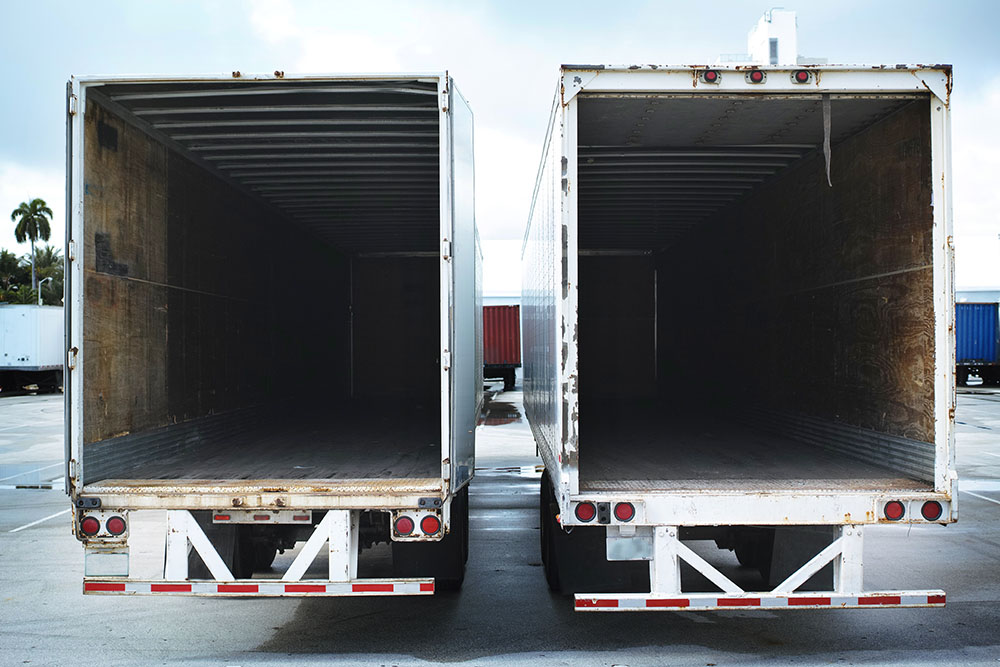What the Autumn Budget means for the logistics sector
04 Nov 24
Read more →

Costly and hugely detrimental to the environment, this problem stems from the manual operations that continue to plague the industry. Using the latest advancements in transport software, businesses can make greater use of available network capacity, thus ensuring that operations run fewer empty miles.
In this week’s blog, we’re exploring the problem and the ways in which transport managers can ensure that their fleet is running at maximum efficiency.
To put the United Kingdom’s problem in perspective, empty HGVs travel for over three billion miles every year – that’s the equivalent of driving to the moon and back 6,500 times – or more than 5,000 years of driving. This issue isn’t confined to the UK alone; in the European Union, one in five lorries travels empty, while in the US, the figure is almost 15%.
Currently, high fuel prices are ravaging the industry and these empty journeys are putting further financial strain on businesses. Alongside the economic ramifications, the negative impact on the environment is substantial, especially when one considers that the road freight sector contributes to 53% of CO2 emissions.
Thankfully, haulage giants and innovative start-ups are working to reduce these empty miles. Despite the complexity of the issue, firms have discovered that automation is the key to an efficient supply chain.
Much of the logistics industry continues to suffer from fragmentation and archaic practices – often lacking in technology for day-to-day operations. Departing from analogue processes is vital, especially since some hauliers continue to book deliveries via phone or email. Such methods lead to dispersed information about shipments, hindering efforts to fill HGVs and optimise journeys.
However, the advent of vehicle electrification and increased digitisation signals a succinct departure from conventional operations. The emergence of a more technologically driven road haulage sector is evident, with transportation management systems (TMS) offering comprehensive visibility across the supply chain. By embracing digital solutions, businesses can enhance order management and logistics coordination.
By optimising transportation processes with automated technology, companies can reduce the number of empty miles driven, avoid shipping delays and bottlenecks and improve the utilisation of their transportation assets.
The implementation of a TMS allows for route optimisation, whilst also helping refine the content of your cargo – ensuring that lorries do not travel empty. Intelligent TMS feature smart load selection, trip planning and driver selection to lower costs by 30% to 40%, improve efficiency, enhance productivity and increase customer satisfaction. This approach not only streamlines operations but also contributes to a greener and more cost-effective industry.

One of the industry’s challenges lies in the lack of collaboration among parcel carriers, as businesses vie for customers in a competitive landscape. This results in inefficient practices, such as unnecessary traffic congestion, higher fuel consumption, and increased emissions.
However, as global freight volumes are projected to double by 2050, the topic of delivery collaboration and consolidation has become more important than ever. TMS dashboards give operations the ability to monitor KPIs and sustainability metrics to gain insight into their network’s environmental impact. Sharing this information with the supply chain can help firms make the right decisions regarding the best business practices.
Lastly, through the strategy of delivery consolidation, businesses can achieve reductions of up to 60% in delivery time, distance and vehicle emissions when compared to conventional practices. This further highlights the importance of cooperation.
The problem of empty lorries plaguing our roads is multifaceted, encompassing financial, environmental and operational aspects. However, the industry is at the precipice of transformative change, driven by digital solutions and sustainable practices. The adoption of TMS technology, route optimisation, load consolidation and enhanced collaboration among carriers are crucial steps in alleviating the issue of empty miles.
By embracing automation, the industry stands to benefit on both ends – improving the experiences of the operations team and lorry drivers alike. TrackTrans’ transport management system seamlessly integrates planning and execution, encompassing aspects like returns and omnichannel fulfilment.
Try our free demo today and enter a future in logistics characterised by efficiency and sustainability.
See how TrackTrans can be tailored to your business with no obligation. Simply complete the form and a member of our sales team will contact your directly.